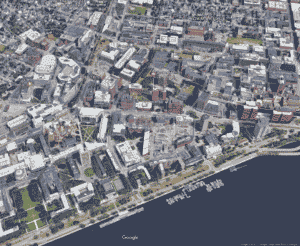Citing the state’s recent economic performance, a tech sector business organization said the state “does not have a revenue problem” amid calls for increased funding to fix years of under-investment in the state’s transit systems.
The Massachusetts High Technology Council, one of the groups that successfully petitioned to remove the proposed 4 percent surtax on household income above $1 million from last year’s ballot, said it wants to understand the “forces behind unrelenting calls for new and increased taxes, even as Massachusetts revenue collections have risen steadily to historic levels.”
The endeavor comes as lawmakers are working hard to get the income surtax question onto the 2022 ballot and as the House is gearing up for a debate over transportation financing this fall, with tax hikes on the table. The Kendall Square Association, a group representing many of the state’s biotech and high-tech software firms, recently declared a “state of emergency” over the MBTA’s performance and called for expanded service connecting Kendall Square to other parts of the Boston metro.
The group pointed to fiscal year 2019, in which state tax collections totaled $29.69 billion, an increase of nearly 7 percent over the previous year and eclipsing budget benchmarks by $1.1 billion. Tax collections were up 15 percent over fiscal 2017, the group said. Just one month into fiscal 2020, tax collections are up 6 percent over last year.
“With tax collections rising at twice the rate of inflation since 2015, Massachusetts does not have a revenue problem despite repeated claims that billions in new taxes must be imposed to support state spending,” the council wrote in its newsletter.
The group said it is concerned that political leaders could make decisions that halt the momentum of the private sector, which it said “has buoyed the commonwealth.” Compounding that concern are “the calamitous economic results” in states like Connecticut, Illinois and New Jersey, where the council said policymakers “unwisely relied on over taxation of productive economic activity to manage their fiscal affairs.”
“Recent national rankings of states’ relative fiscal health … rate Massachusetts poorly and in the same company as the fiscal basket cases cited above,” the group wrote.
The High Tech Council, in addition to calling attention to the state’s “significant long-term fiscal challenges decades in the making,” also heaped some praise on state policymakers for having taken recent steps to improve fiscal stability.
“Specifically, actual and budgeted contributions to the state’s ‘rainy day’ Fiscal Stabilization Fund from [fiscal 2018] through [fiscal 2020] will total $2.2 billion, bringing the fund balance up to $3.3 billion,” the council wrote.
Associated Industries of Massachusetts President and CEO John Regan said earlier this week that businesses “already burdened with business and compliance costs” could be put under greater stress if the legislature opts for tax increases.
“Beacon Hill is awash with calls for more revenue. But the slowing of the economy during the second quarter means this is exactly the wrong time to place additional cost burdens on business,” Regan said. “If the economy goes into a downturn while costs are increasing that will create big challenges for employers.”
Business groups have decried the Boston area’s public transportation woes as a hindrance to growth and some, including various chambers of commerce, have formed a working group to amplify the business community’s voice and proposed solutions in the debate.
The signaling from business groups about taxes could set up a collision of interests in the fall as lawmakers eye transportation improvements that businesses desire but also tax increases opposed by business officials.




 |
| 


